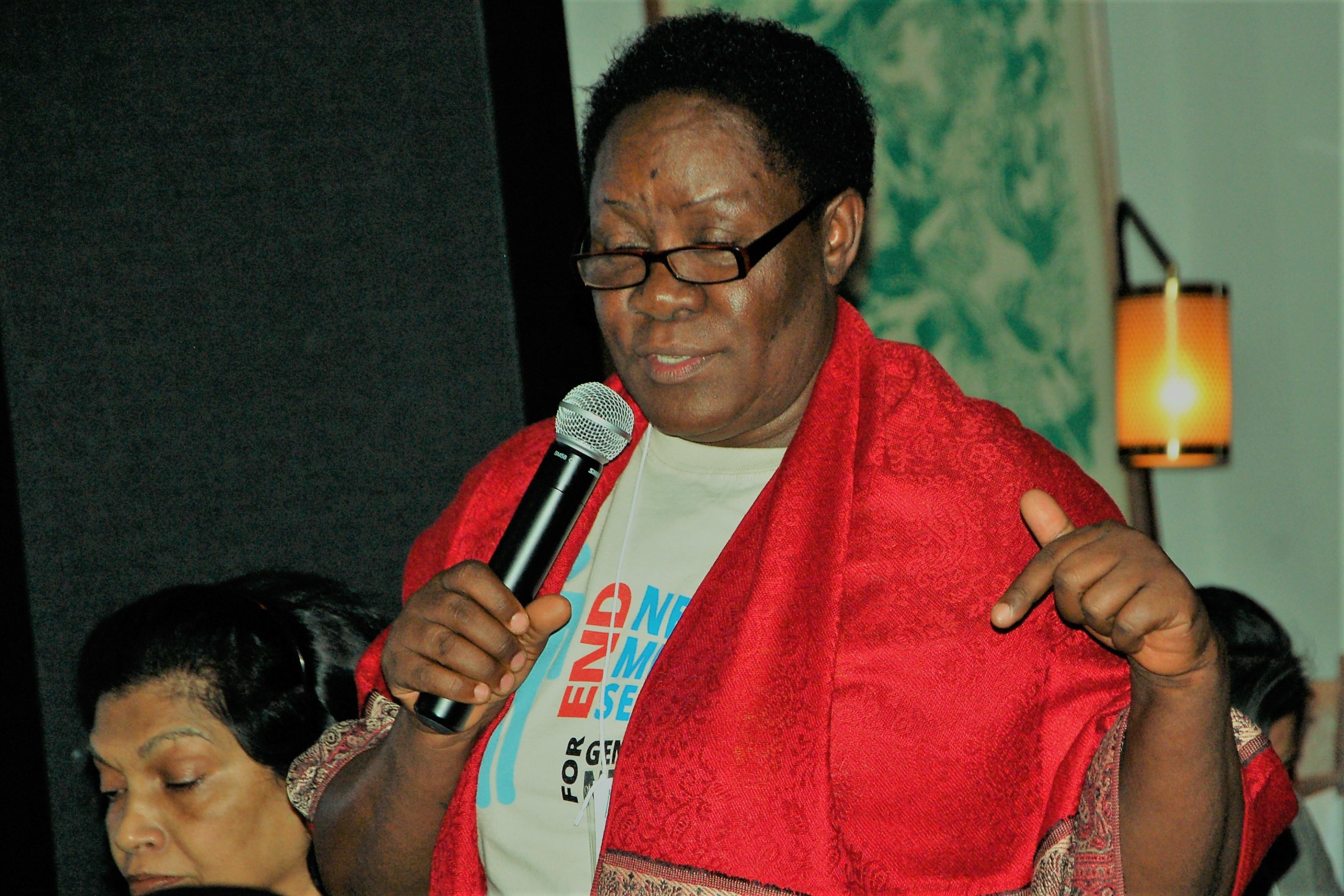20 Jul Media sexism around the world: Uganda
This interview is part of a series with the Global Media Monitoring Project (GMMP) network partners discussing how media sexism plays out in their part of the world, and why it is important to end it. #ENMS
by Val Kalende

Why care about media sexism? Media wield a lot of power, their reach is far and wide. They shape opinions. Sexism destroys, ridicules and is negative by all standards. We need to end it instead of allowing it to grow and permeate our society.
How does media sexism bear on equality struggles and in our lives? Media sexism reinforces gender inequality with consequences for the subordination of women. Women are often portrayed as sex objects and in the news houses, hired as news anchors and front desk staff to attract the audience. Women are hardly heard and when quoted, it is on issues related to the family. Images of women are carried in trivial rather than substantive programs.
How have your experiences in journalism helped shape your understanding of gender inequality and the need to end media sexism? Growing up in a family of 12 and the eldest of four girls was enough for me to know that girls are more protected than boys. Girls are expected to be receivers. But once I came out of secondary school I became a rebel to everything I had been taught. I became more assertive towards my brothers who thought I had to be protected, or not entitled to be in their circles. I became a planner and an organizer. Then came my exposure to journalism. I realized that there is such an enormous gap in the media. I was one of three women in a class of 25. We had to prove ourselves, and literally fight for space, even to contribute in class. Returning to teach at my alma mater Makerere University’s School of Journalism revealed that the situation had not changed. Because of my earlier experiences with gender equality struggles, I was able to advocate for funding support for female students at the journalism school. We organized spaces for women to become more assertive. We started “The Other Voice” newspaper to keep the gender debate alive. Unfortunately, sexism still thrives despite such efforts.
UMWA monitors the gender dimensions in news reports about peace, conflict and security. What is the link to gender equality? The voices of men in news about these topics are more dominant. Whether on issues at home, refugees, or food supply, women are silenced. And incredibly too, when opportunities for evacuation are available, men are at the forefront. They are the ones cooking food, dividing it and distributing or eating it. The women are at the receiving end! But interestingly, our media monitoring has found no story conveying women’s opinions on how it feels to trek long distances carrying young children and loads of domestic supplies. Or how they feel about husbands or male relatives sauntering along load free! We must challenge lopsided development that benefits men much more than it does women. This includes infrastructure and policies that are insensitive to women. Media sexism cultivates a society where women’s bodies are objectified, where women and girls are not safe on account of their gender.
What recent news story caught your attention for its gender angle? It was one carried by the June 2, 2017 issue of New Vision newspaper of a deceased professor’s widows and children being paraded and shamed at his funeral. The reporting was gender-biased and there was hardly a news story in the local media that condemned the public shaming of the widows. The deceased professor’s children were paraded alongside their mothers. Those who refused to be shown publicly would have ran the risk of being disinherited from the man’s property.

No Comments